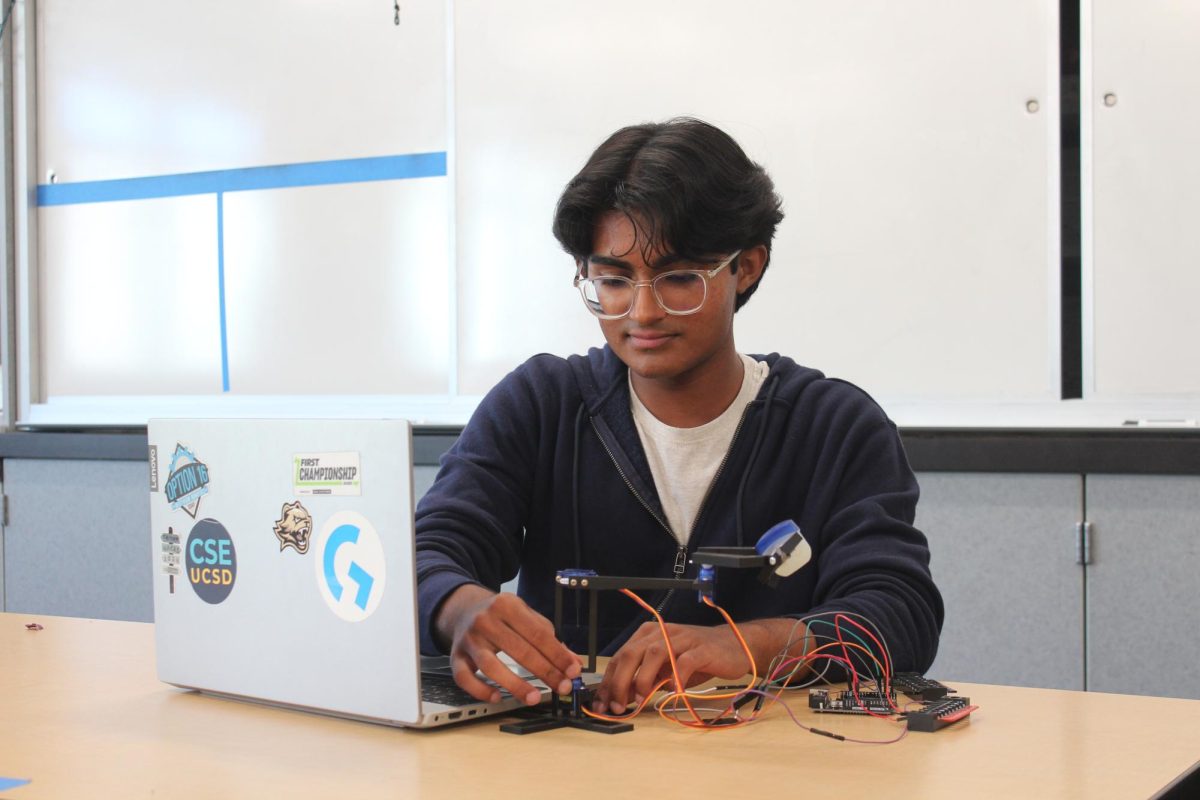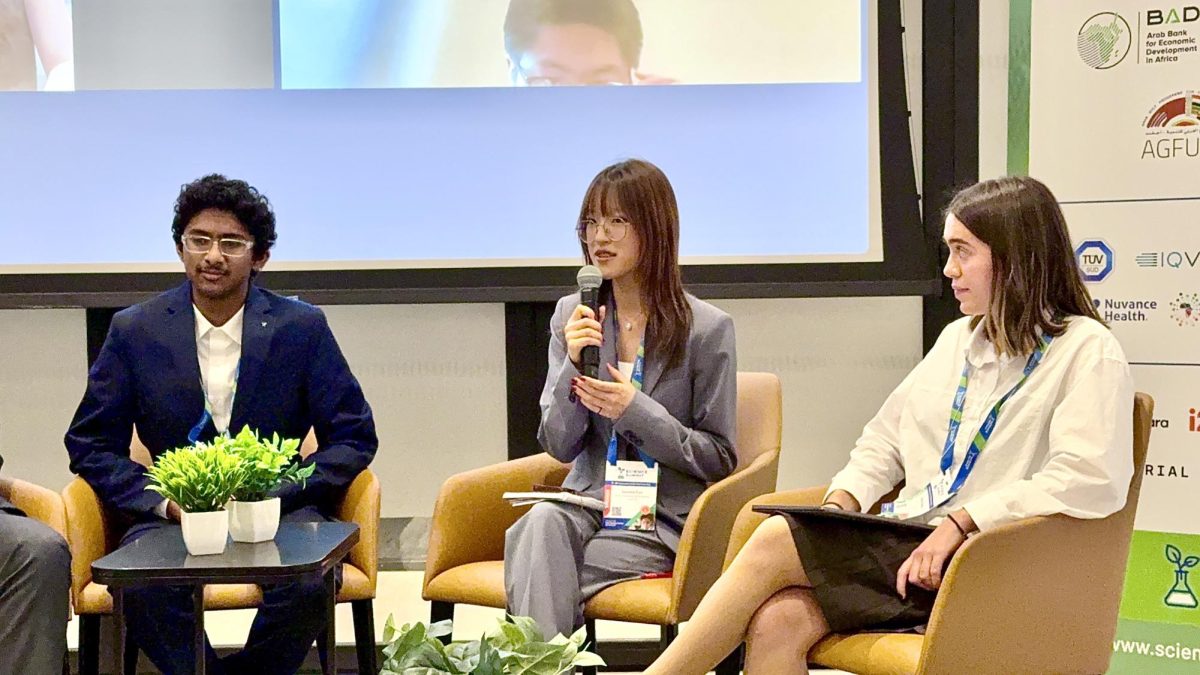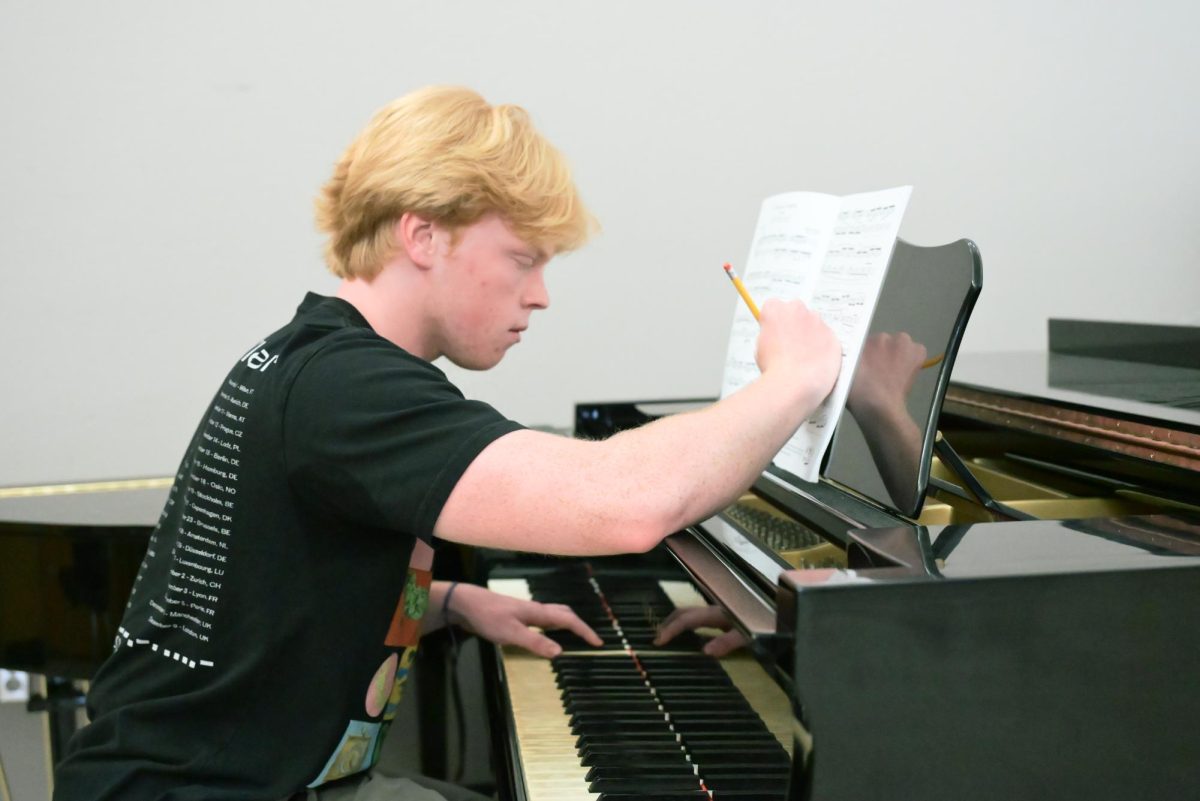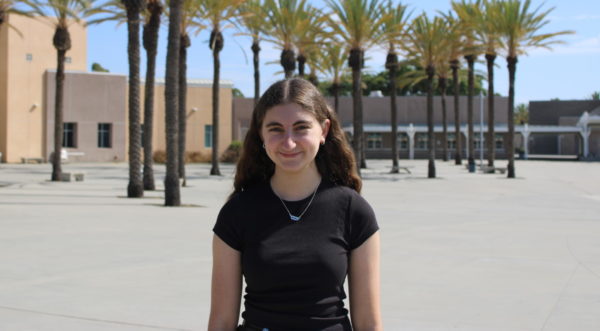The first time Kelsey Payne (12) woke up in her own bedroom after a year of living abroad in Germany, it took her a few moments to recognize where she was.
“The weirdest thing was waking up in my bedroom,” Payne said. “When I woke up, I looked around and just thought, ‘This is my room. These are all of my clothes.’”
Although she had her own room in her host family’s house in Kempen, Germany, it wasn’t the same as the room she had grown so accustomed to at home. While Payne said that adjusting back to her life at home wasn’t necessarily hard, it felt different. Simple things such as getting home from school were vastly different for Payne in Germany. Unlike the 15-minute drive she was accustomed to in San Diego, her new commute became a much more complicated process after arriving in Kempen in September 2022.
“It wasn’t easy to get from my school to my house,” Payne said. “I would either have to take a 20-minute bus, wait 30 minutes, and then take another 30-minute bus or I would have to take a 15-minute bus to a 10-minute train to a 10-minute bus. It was sometimes complicated.”
Throughout her year in Germany, Payne had to adjust to much more than just a new bedroom and public transportation, a new language, a new culture, and a new school.
The Congress Bundestag Youth Exchange program, which Payne participated in, sent her off to live with a host family in Germany for one year. The trip was entirely funded by the U.S. Congress and the Bundestag including flights, all transportation, and school supplies. Payne’s host family lived in a small village called Saint Hubert, within the German town of Kempen.
“The community of Saint Hubert was very tight-knit,” Payne said. “Everybody knew everybody, everybody went to the same church, and the kids all grew up together. Everything was so much smaller and there wasn’t as much to do which made me slow down and just exist.”
Payne attended Bischöfliche Maria Montessori Gesamtschule, a public school with a loose tie to Catholicism, with her host sister in a neighboring larger city, Krefeld. Unlike most school days in the U.S., the amount of time she spent at school in Germany varied because she took different classes every day. School started at 8:05 a.m. and ended anywhere between 12:25 p.m. and 4:50 p.m. depending on the schedule that day.
The size of the school Payne attended in Germany was also different from Westview. While the senior class of 2024 at Westview has over 600 students, Payne said her class in Germany was between 75 and 100 students. According to Payne, this small class size made it easier to meet people and make connections.
“The German school was grade five through 13 but it was the same amount of students as Westview for the whole school,” Payne said. “[At Westview,] I like to think that everybody in our class knows everybody, but then you realize that you actually have no idea who anybody is. But, in my German class, they all knew each other, and they’d all been going to school together since fifth grade.”
At school, Payne enrolled in 11 classes, each of which she attended twice a week. They were German, English, French, math, biology, history, geography, social sciences, art, P.E., and Catholicism. Some of the classes, like math, were familiar to her, while others covered topics she’d never learned about at Westview.
“I really enjoyed math class, but I didn’t really learn new stuff,” Payne said. “It was pretty much just Math III again. It was easy, but I had to relearn all of it in German. The teacher was really nice and he was also an English teacher so if I didn’t understand something, he could explain it to me in English.”
After taking French for her first two years of high school, Payne was hoping to keep up her skills while also learning German. However, she said she found that the French class she took in Germany was easier than what she was used to at Westview and she ended up losing some of her skills.
“It was one of my goals to not lose all of the French that I had learned,” Payne said. “I was spending so much time focusing on German that I didn’t want to not be able to speak French anymore. I was in the highest level of French that I could be in for the grade that I was in, but it was like French 5-6 [at Westview].”
In addition to learning German and French at the same time, Payne was also taking an English class. The class counted as a foreign language credit, however, Payne said it wasn’t like foreign language classes at Westview. The students were studying English literature, reading books, and writing essays.
“Pretty much everybody in Germany speaks English, especially kids our age because they all have to take it in school,” Payne said. “[People in Germany started taking English in first grade.”
After school, Payne spent time with her host sister and her friends from school, most of which she made through her host sister. She also had the opportunity to travel a lot, stepping foot into 12 countries around Germany and 25 different cities within Germany. Because she had very little homework, there was a lot more flexibility in her schedule.
“One of my friends from school played volleyball and invited me to play volleyball with her once a week,” Payne said. “We would also go hang out in the city after school. It was a lot more chill than I feel like things here are with school. The majority of the kids I know don’t go out or do whatever they want on a school night. But [on a Tuesday,] my host sister was like, ‘Do you want to go see a movie today?’ We did weekend things all the time.”
Payne said that she didn’t experience much homesickness while away, but she did miss some of the traditions she was used to at home.
“December was definitely the worst month for homesickness for me,” Payne said. “My family has a lot of important Christmas traditions and I wasn’t able to do a lot of them. But, most of the time, I wasn’t really focused on home because I went in knowing that I was going to go home [at the end of the year]. I was living in the moment and not thinking about it a lot.”
Now back in San Diego, Payne said the biggest challenge has been adjusting to the increase in homework.
“I’m only taking three classes right now, but still the amount of homework that I’m getting from these classes is more than I was getting from my 11 classes [in Germany], which is insane,” Payne said.
According to Payne, her mindset when interacting with other people has changed since returning from Germany.
“I feel like I’m a more educated citizen of the world, but I’m still who I was before I left; my personality hasn’t really changed,” Payne said. “I’m just much more conscious of other people having their own cultures. My perspective on the world changed. I realized that people are people everywhere. Yes, [Germany] was different but it wasn’t so drastically different. The people are still people and they’re just living their daily lives.”
All in all, Payne said that she is content with her decision to go on the year abroad.
“Though there were parts of my exchange year that were not perfect, there’s nothing I would have changed,” Payne said. “Every experience I had made [my time there] richer.”






